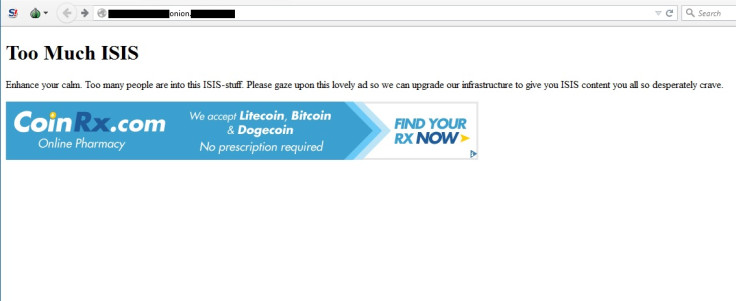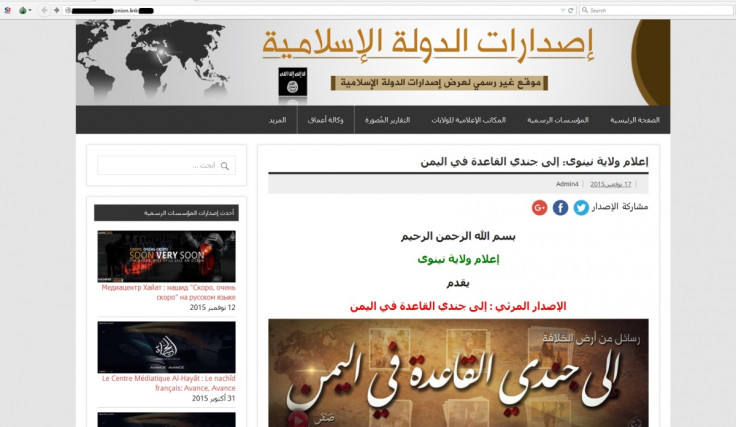Hackers replace dark web Isis propaganda site with advert for Prozac

An Islamic State (Isis) propaganda website on the dark web has been taken down by hacktivists and replaced with an advert for a site selling Prozac and a message telling would-be IS supporters to calm down. Ghost Sec, a faction of the hacktivist collective Anonymous (unaffiliated with the counter-terrorism organisation Ghost Security Group), targeted the Isdarat website after it appeared on the Tor anonymity network last week.
The message posted to the Tor website states: "Too Much ISIS. Enhance your calm. Too many people are into this ISIS-stuff. Please gaze upon this lovely ad so we can upgrade our infrastructure to give you ISIS content you all so desperately crave."

The advert is for a site that describes itself as "the number one bitcoin online pharmacy", which sells medication ranging from Viagra to Prozac. The advert and message have taken the place of the original site less than one week after it was created.
What is the dark web?
The dark web is a section of the internet that requires specialist software tools to access, such as the Tor browser. Originally designed to protect privacy, it is also associated with illicit activities.

It is often confused with the deep web, which is a vast section of the surface internet not indexed by search engines such as Google. The deep web comprises around 95% of the internet.
Isdarat is the latest of hundreds of websites to be taken down by Anonymous and its affiliates, though it is the first time that a site on the dark web has been hit. The website was only accessible using the Tor browser, a type of specialist software that uses a system known as onion routing to disguise a user's location. Counter terrorism analysts have speculated that IS is turning to the dark web to safeguard its propaganda content from hacktivists.
The creators of the IS site made some "rookie stupid" mistakes when setting it up that left it open to attacks, according to security expert Scot Terban. In a recent blogpost, Terban wrote: "The system behind this data feed (could be) vulnerable to some attacks. All this data leads me to believe that the end user can be tracked down easily enough by authorities but I also think that without that, I can still track down who set this up without having to attack an onion site."
The work of online hacktivists was praised on 24 November by the UK's security minister, John Hayes, who said during a home affairs committee meeting that he was "grateful for any of those who are engaged in the battle against this kind of wickedness".

Efforts by the hacktivist collective Anonymous as part of its Op Paris (#OpParis) campaign have also been widely criticised for their indiscriminate takedowns of sites and social media accounts that could provide valuable counter-terrorism intelligence.
"Anonymous does not coordinate their calls for social media account closures with government officials," Michael Smith, an adviser to the US Congress and co-founder of the national security firm Kronos Advisory, told IBTimes UK in a recent interview. "This can actually serve as a form of interference, which ultimately benefits the enemy. From my own personal experiences, I can assure you this has been the case, especially following the attacks in Paris."
Editor's Note: This article originally reported that the counter-terrorism network Ghost Security Group was behind the attack. The perpetrators were in fact members of Anonymous unaffiliated with Ghost Security Group. The article has been amended accordingly.
© Copyright IBTimes 2025. All rights reserved.






















